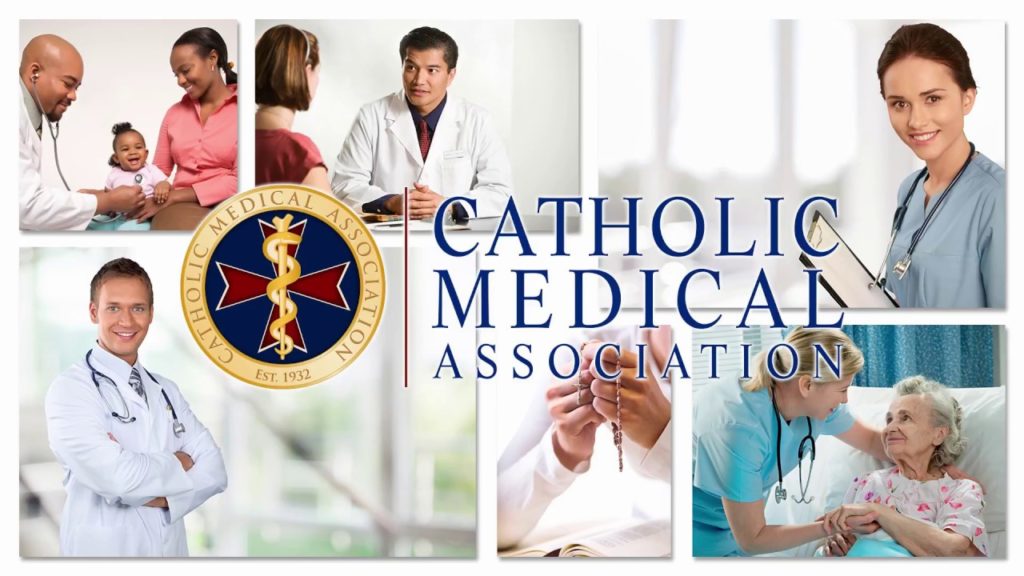December 2, 2020
JOINT STATEMENT: PHYSICIAN SUPPORT FOR ETHICAL VACCINES
A Joint Statement by:
American Association of Pro-Life Obstetricians and Gynecologists
American College of Pediatricians
Catholic Medical Association (USA)

Christian Medical and Dental Associations
Since the onset of the COVID-19 pandemic, our society has had to adapt to unprecedented restrictions and limitations. During this trying time, it has been difficult to find points of optimism. The rapid development of vaccine candidates utilizing varied techniques remains encouraging. However, while expeditious availability of effective vaccines is a laudable goal, the physician-led organizations presenting this statement stress the need for assurances of safety, efficacy, and a full commitment to uncompromised ethical development.
There are many vaccine candidates under development with newer technologies that have received much attention. These include the use of viral genetic material (mRNA and DNA), the synthesis of viral protein in a laboratory, and the incorporation of coronavirus genetic information into another harmless carrier virus that is then injected. The use of these techniques has produced very few effective and approved vaccines for any viral infection thus far. Recent reports of the effectiveness of the Pfizer/BioNTech and Moderna COVID-19 vaccines, which are both mRNA vaccines, are encouraging. Although it is true that the animal-phase testing for these vaccines used abortion-derived fetal cells, commendably, it does not appear that production methods utilized such cells.
Considerable attention is also being directed at the use of adenoviruses, a group of common respiratory viruses. After disabling the virus and inserting coronavirus genetic material, the resulting product could be used for vaccination. However, as with other newer vaccines, the adenovirus delivery protocol has not produced a licensed vaccine despite many years of attempts. Of further concern is the standard use of abortion-derived fetal cell lines to produce these vaccines by companies such as AstraZeneca and Johnson & Johnson. Sadly, many other current vaccine candidates being developed also utilize cell lines derived from aborted babies for their production.
Fortunately, there are alternatives that do not violate this basic ethical and moral standard. Over the past decades, more than fifty viral vaccines have been approved using an attenuated or inactivated vaccine. Many of these vaccines have not utilized abortion-derived fetal cell lines for their production. The virus is grown in the laboratory and harvested, then weakened or inactivated to serve as a safe vaccine. In addition, other means of manufacturing with fully ethical protocols are used, including the John Paul II Medical Research Institute’s use of umbilical cord and adult stem cells. These and other ethical approaches provide encouragement for the future, where no vaccine will violate the dignity of human life in their production.
Although the rapid development, approval, and distribution of COVID-19 vaccines is important, many factors must be considered. The vaccines must be proven safe and effective before their release for widespread use, and the certainty of these assessments will improve with time.
It is also profoundly important to recognize the vaccines that may have been developed with the use of abortion-derived fetal cell lines. This awareness is necessary from the perspective of both the health care professional and the patient, and every participant in this process deserves to know the source of the vaccine used to allow them to follow their moral conscience. It is long overdue for researchers to abandon the use of abortion-derived cells. When all approved vaccines are fully ethical, from development to production, our physician-led organizations and like-minded Americans will no longer question their use.
Health care professionals and hospital systems should make the source of their vaccines known to the public, with specific information regarding those that are ethically produced. Providing this transparency to those who rely on them is a foundation of good medical care. In addition, patients and their families should not hesitate to contact their health care professionals and request specific information about the vaccines available and their sources. This applies not only to COVID-19 vaccines, but all other routine vaccinations. Most vaccines have ethical alternatives, and with the public’s expectations of ethical options, the production of unethical vaccines will decline and morally acceptable vaccines will replace them.
Respect for life is foundational, and the exploitation of the unborn for vaccine production is a violation of basic human rights. The current pandemic is an opportunity for all involved in healthcare delivery to raise their expectations and demand clear information that confirms morally correct care and prevention of disease. If COVID-19 vaccines are approved as safe and effective, we believe utilization of the least ethically problematic vaccine available may be justified by the intended good achieved in the prevention of disease and death of those around us.
We strongly encourage all health care professionals and those under their care to expect and demand vaccines that are safe, effective, and ethically sound. Our organizations will remain committed to that goal until all vaccines satisfy those criteria.
**********************************************************
Current information regarding potential vaccines for COVID-19, including details regarding the possible use of abortion-derived fetal cell lines, can be found at the Charlotte Lozier Institute website: https://lozierinstitute.org
The organizations supporting this statement can be contacted through their websites:
American Association of Pro-Life Obstetricians and Gynecologists – aaplog.org
American College of Pediatricians – acpeds.org
Catholic Medical Associations – cathmed.org
Christian Medical and Dental Association – cmda.org







